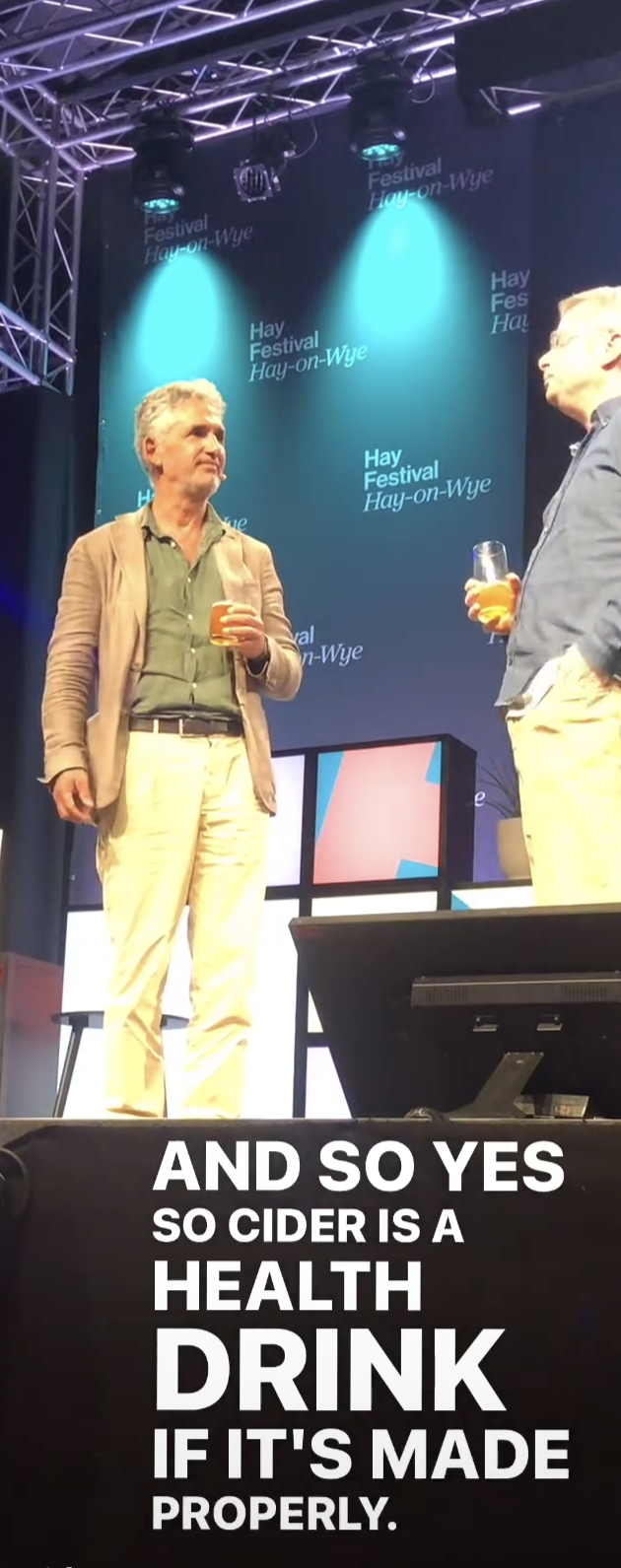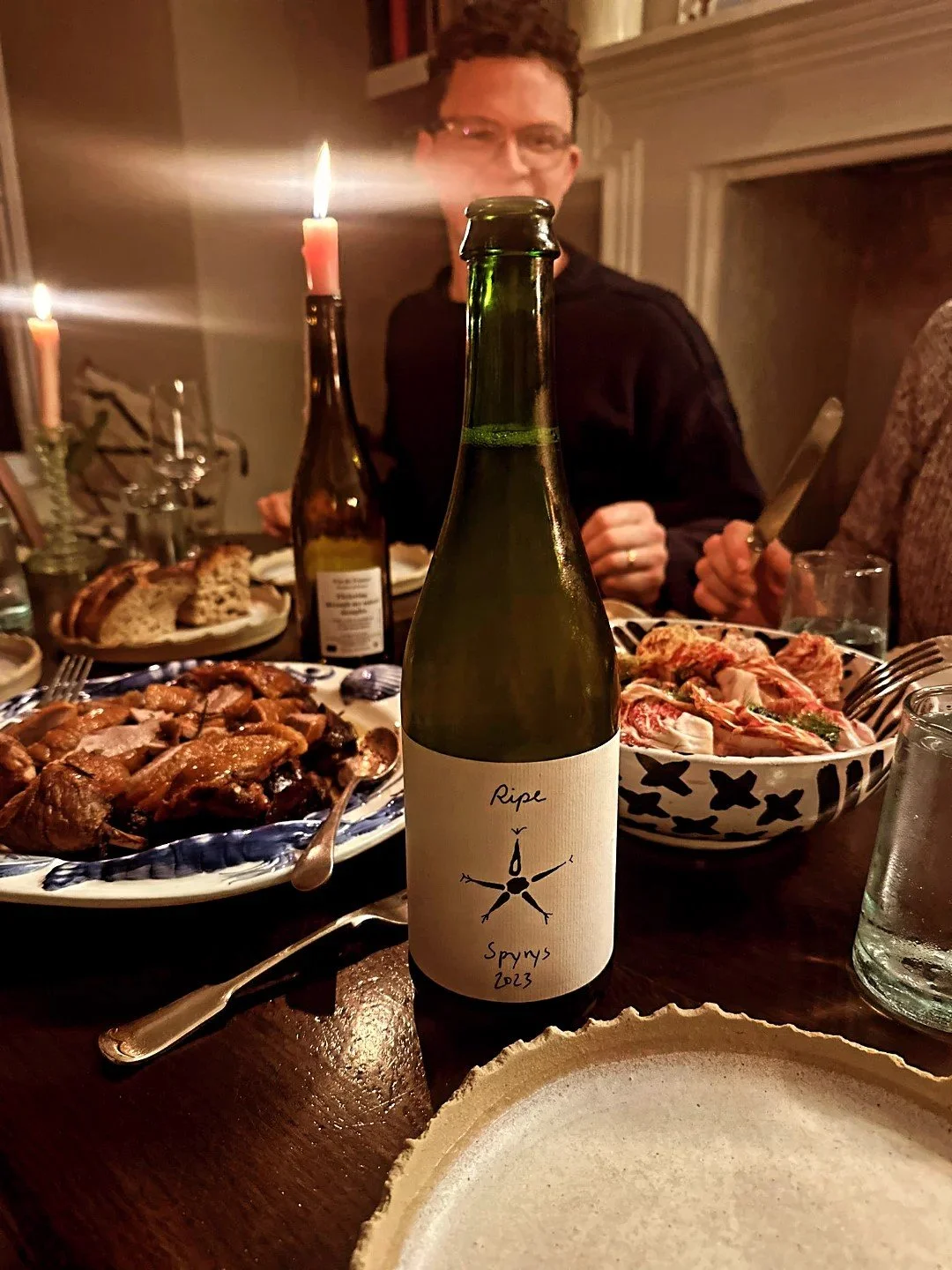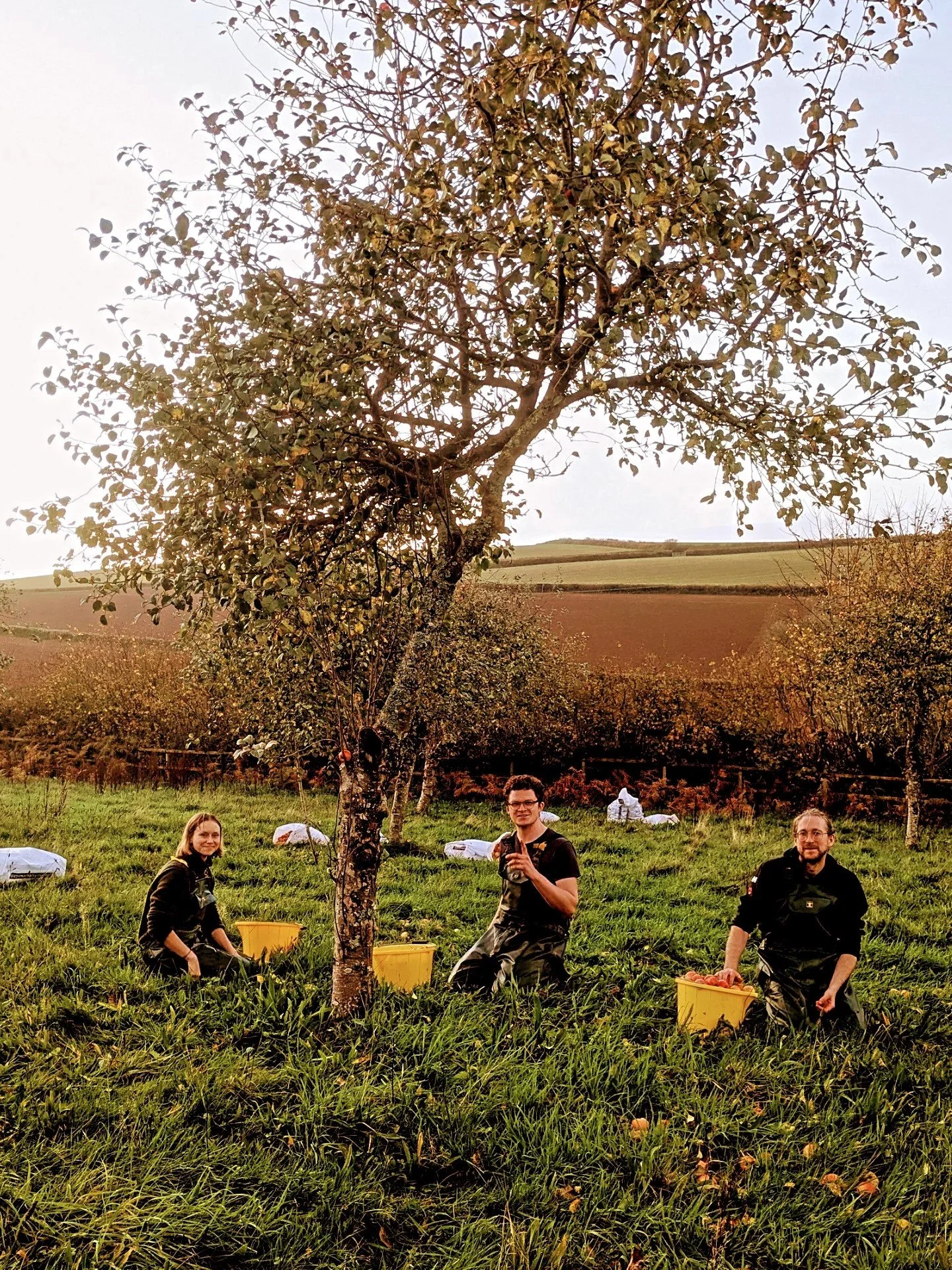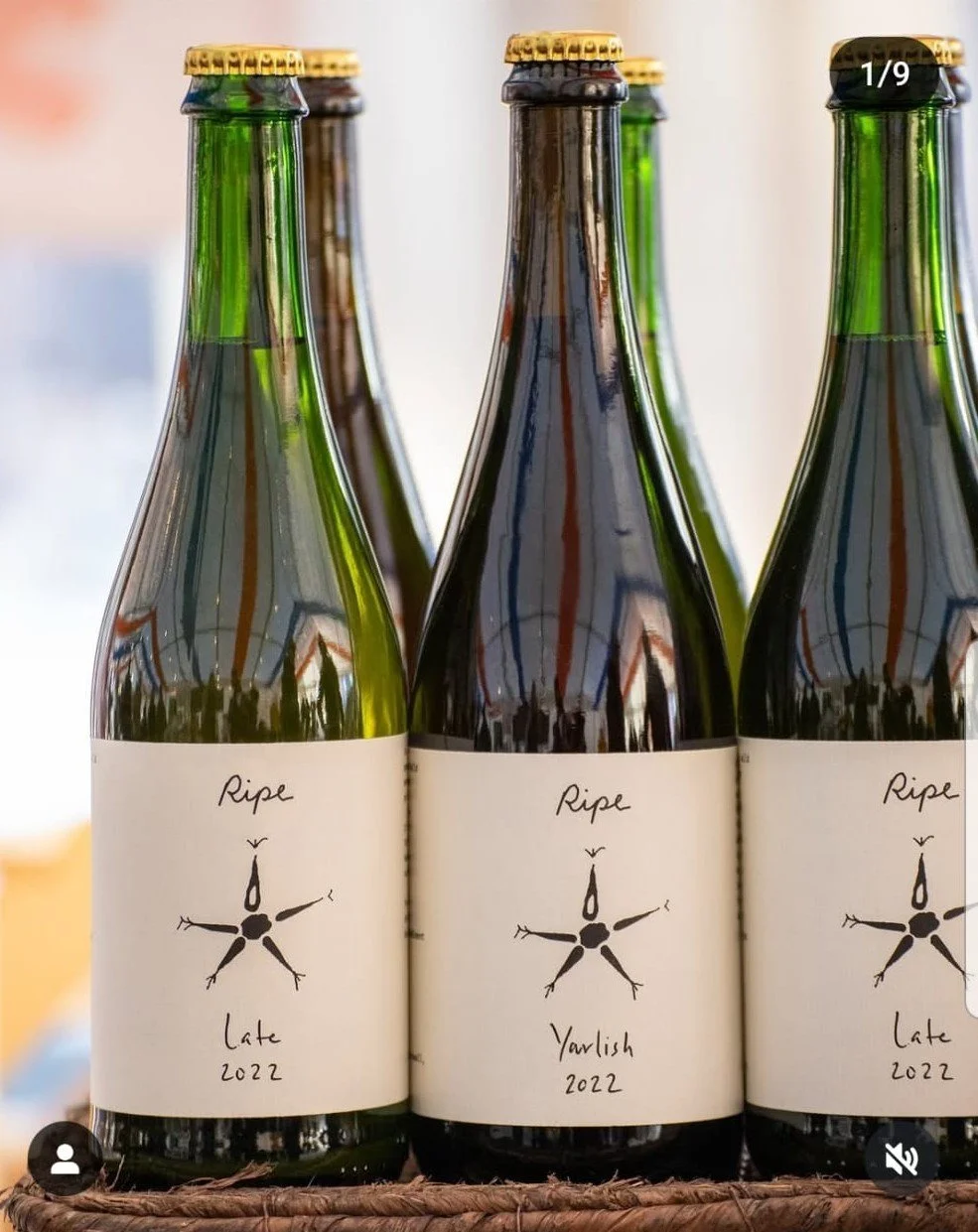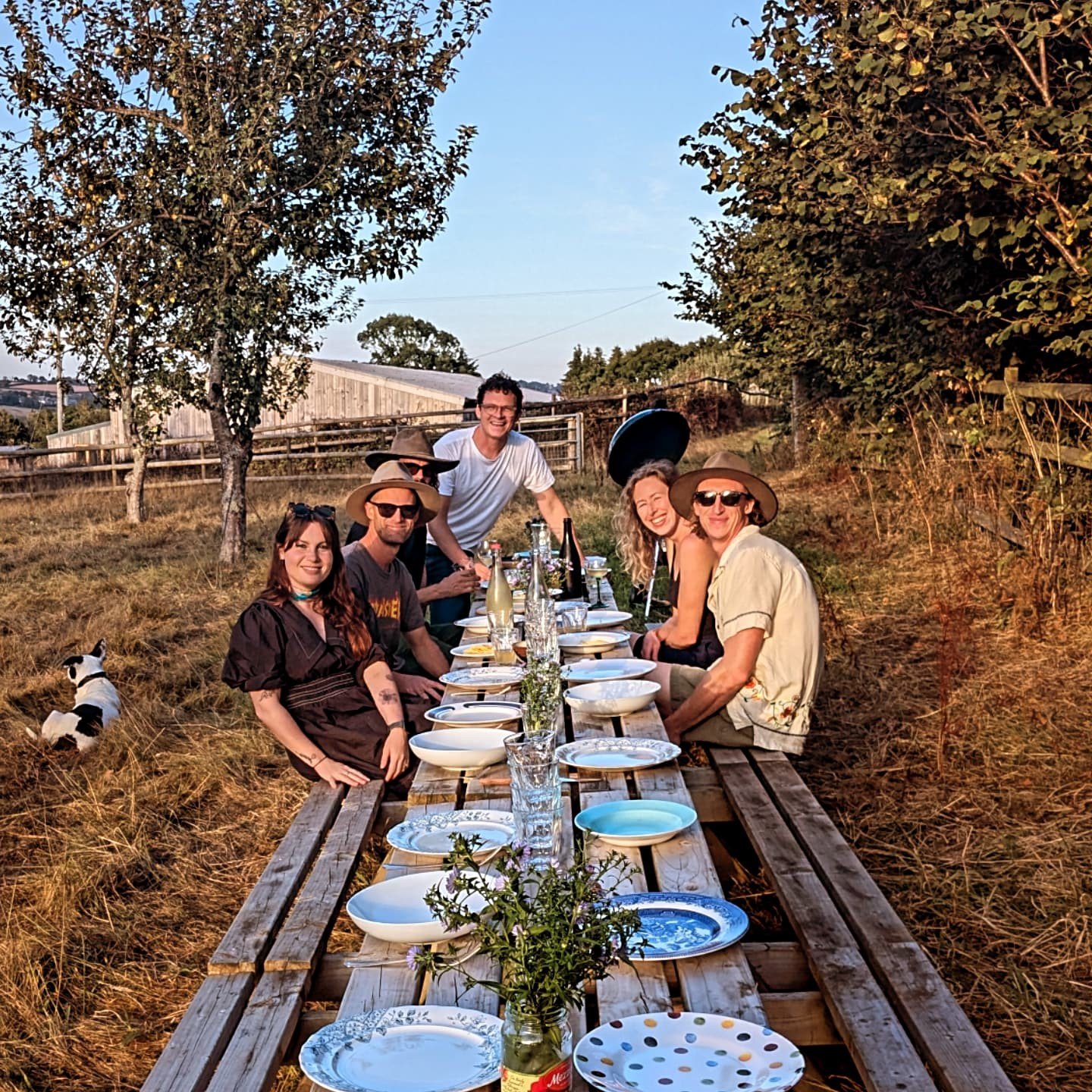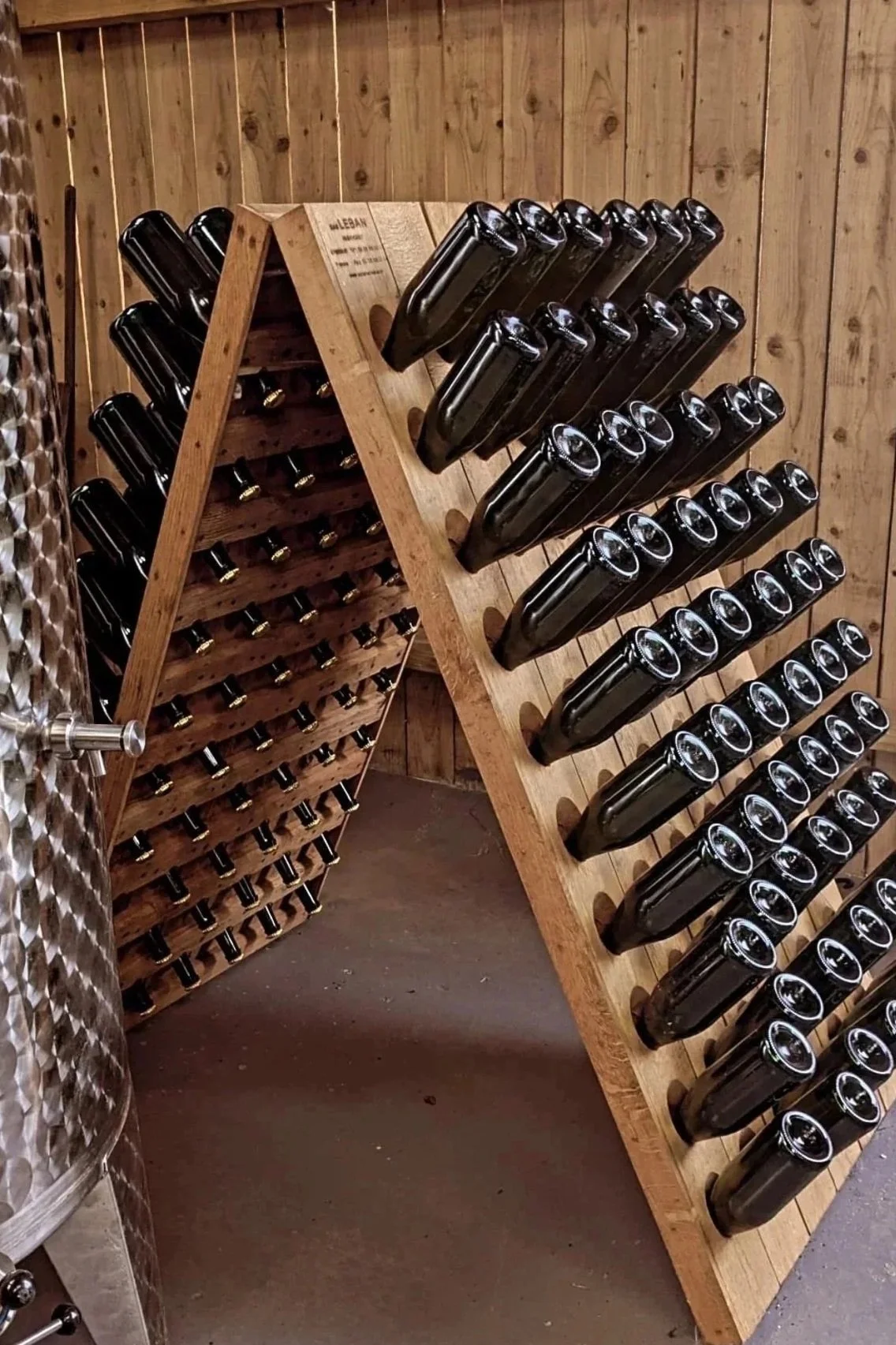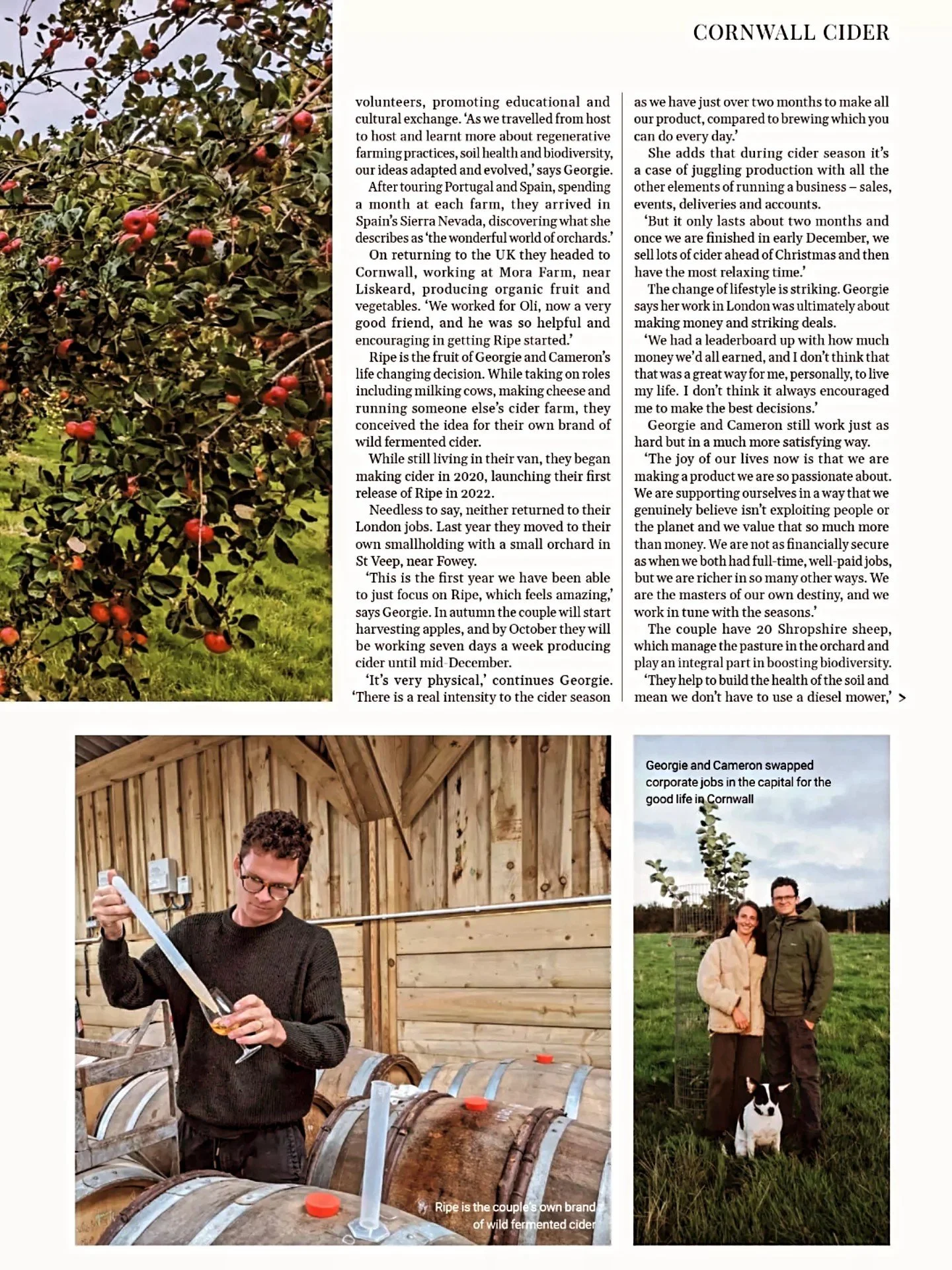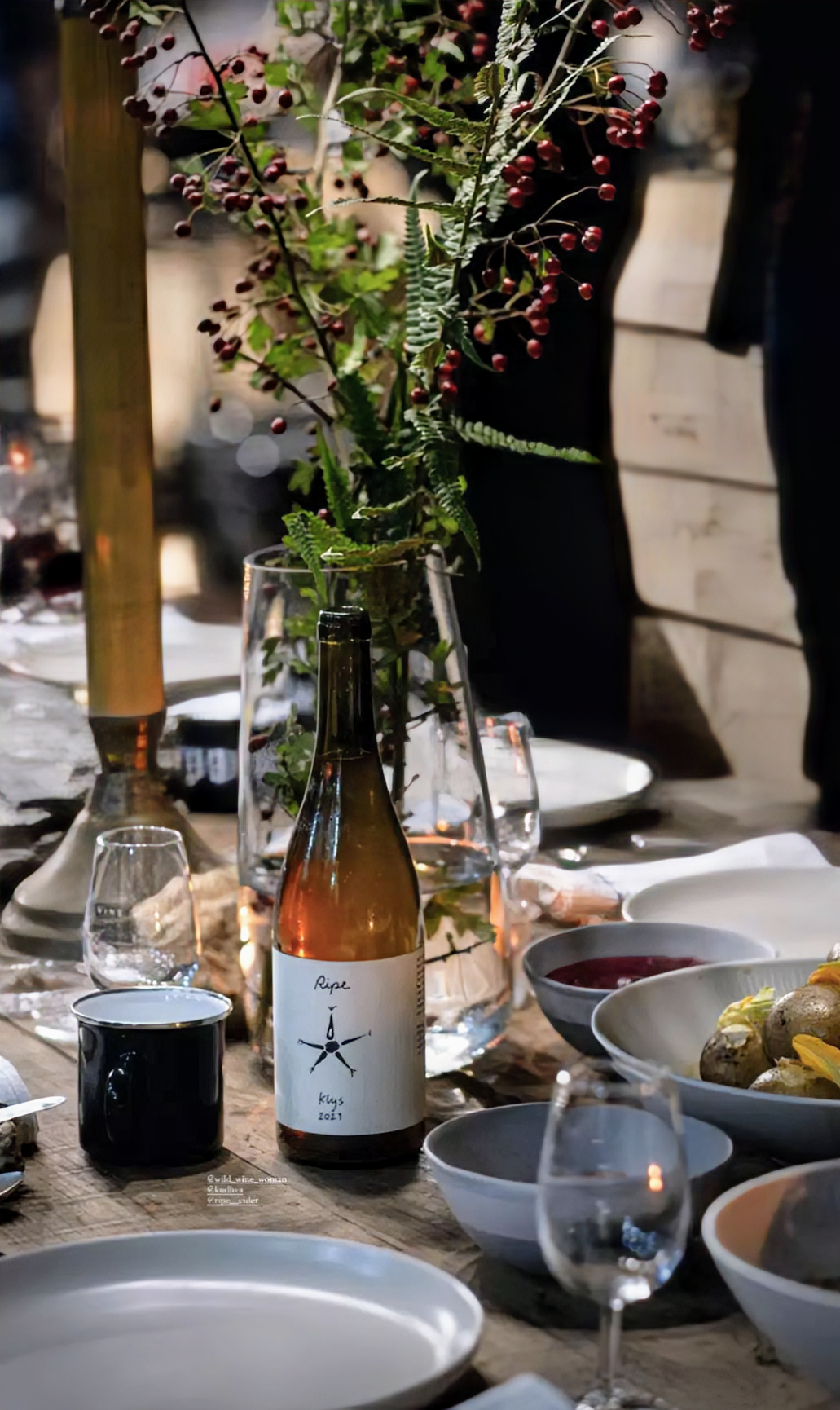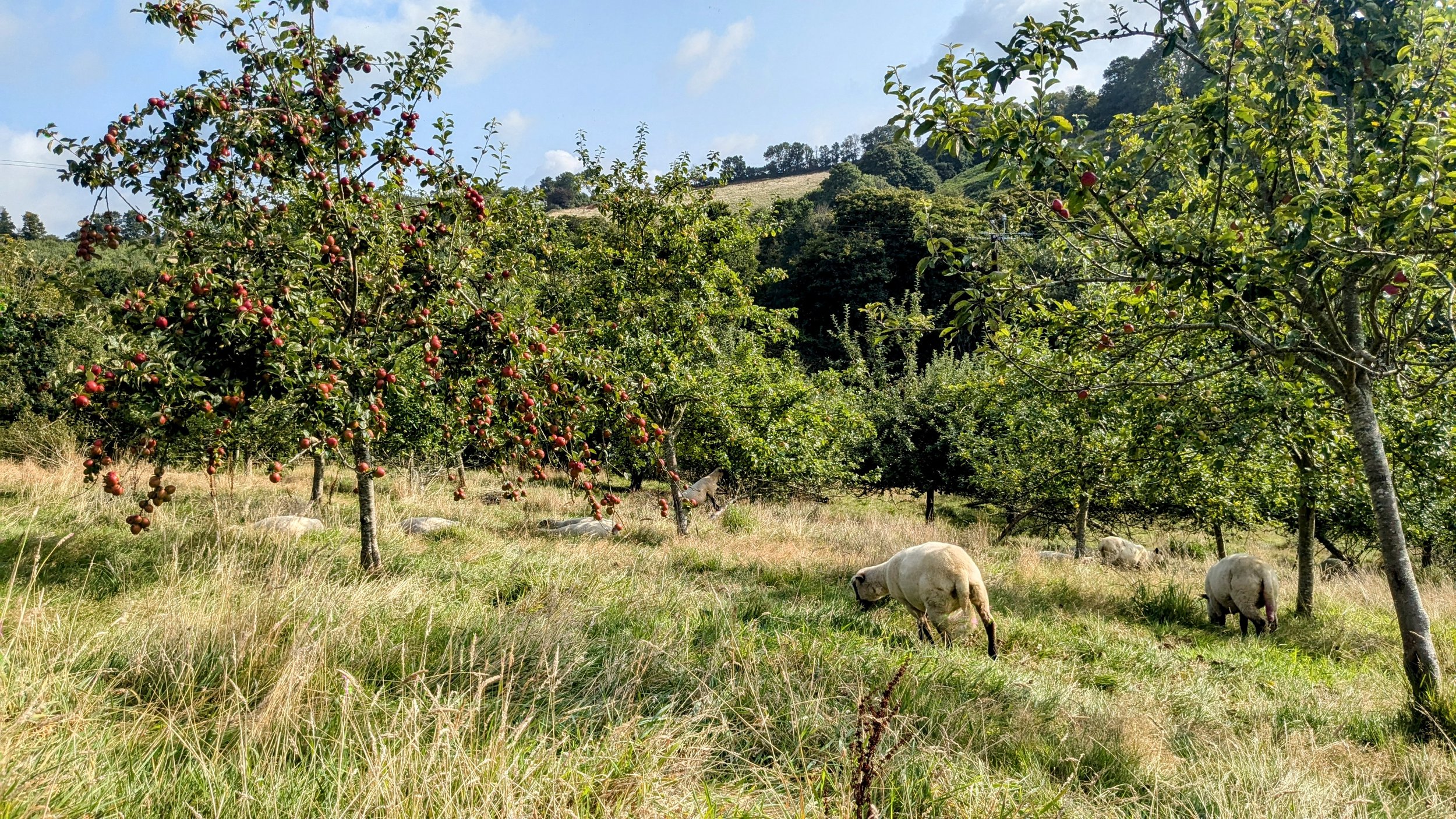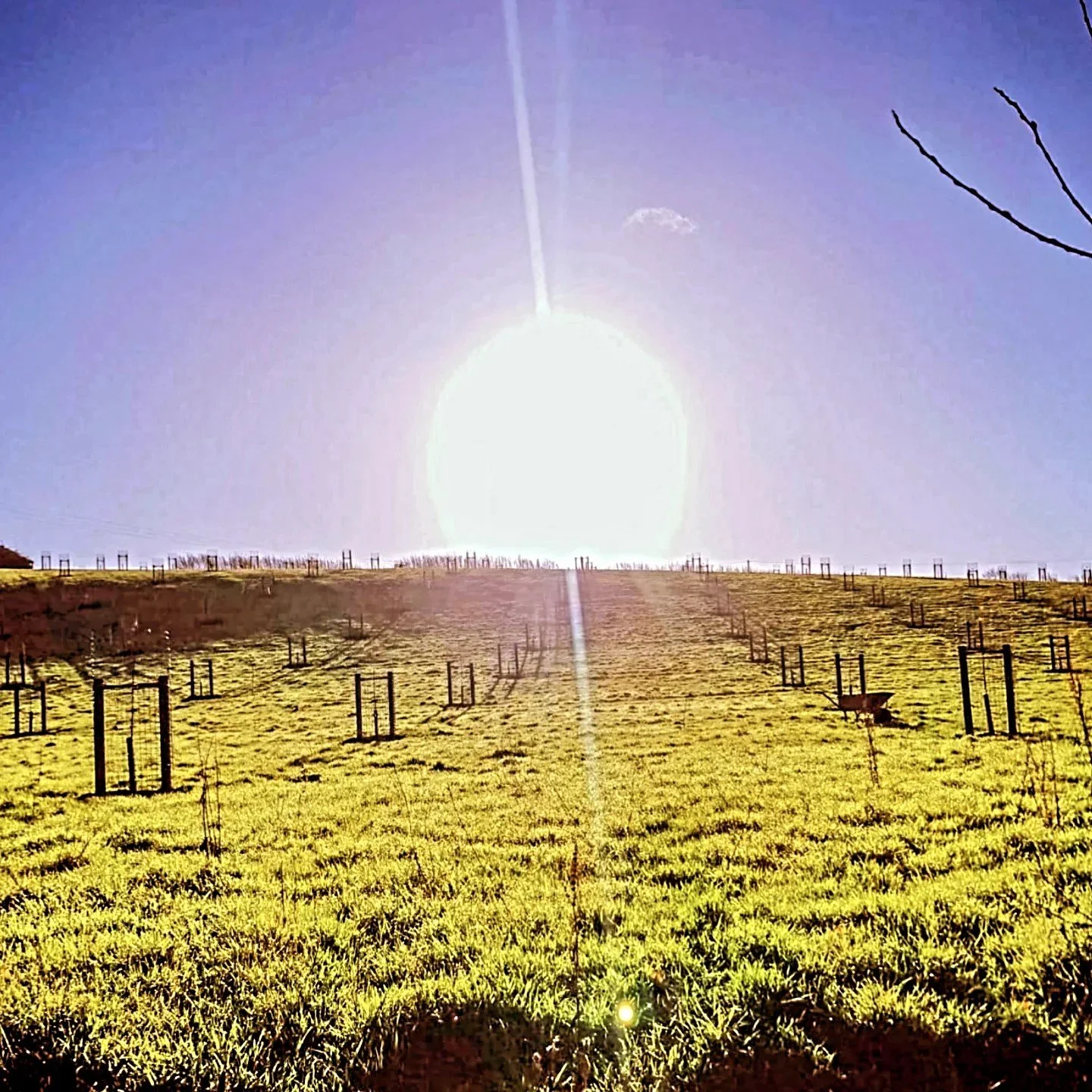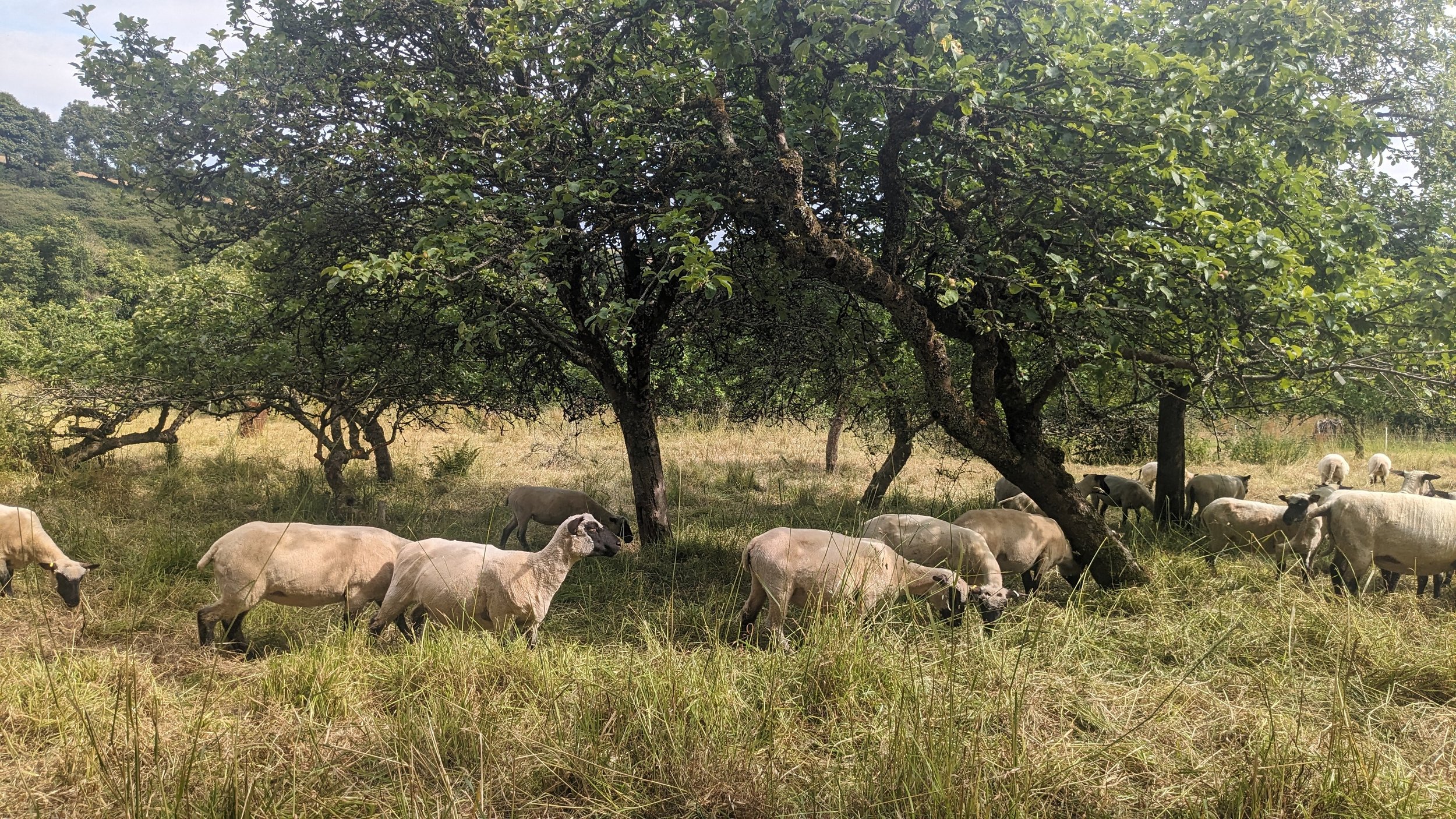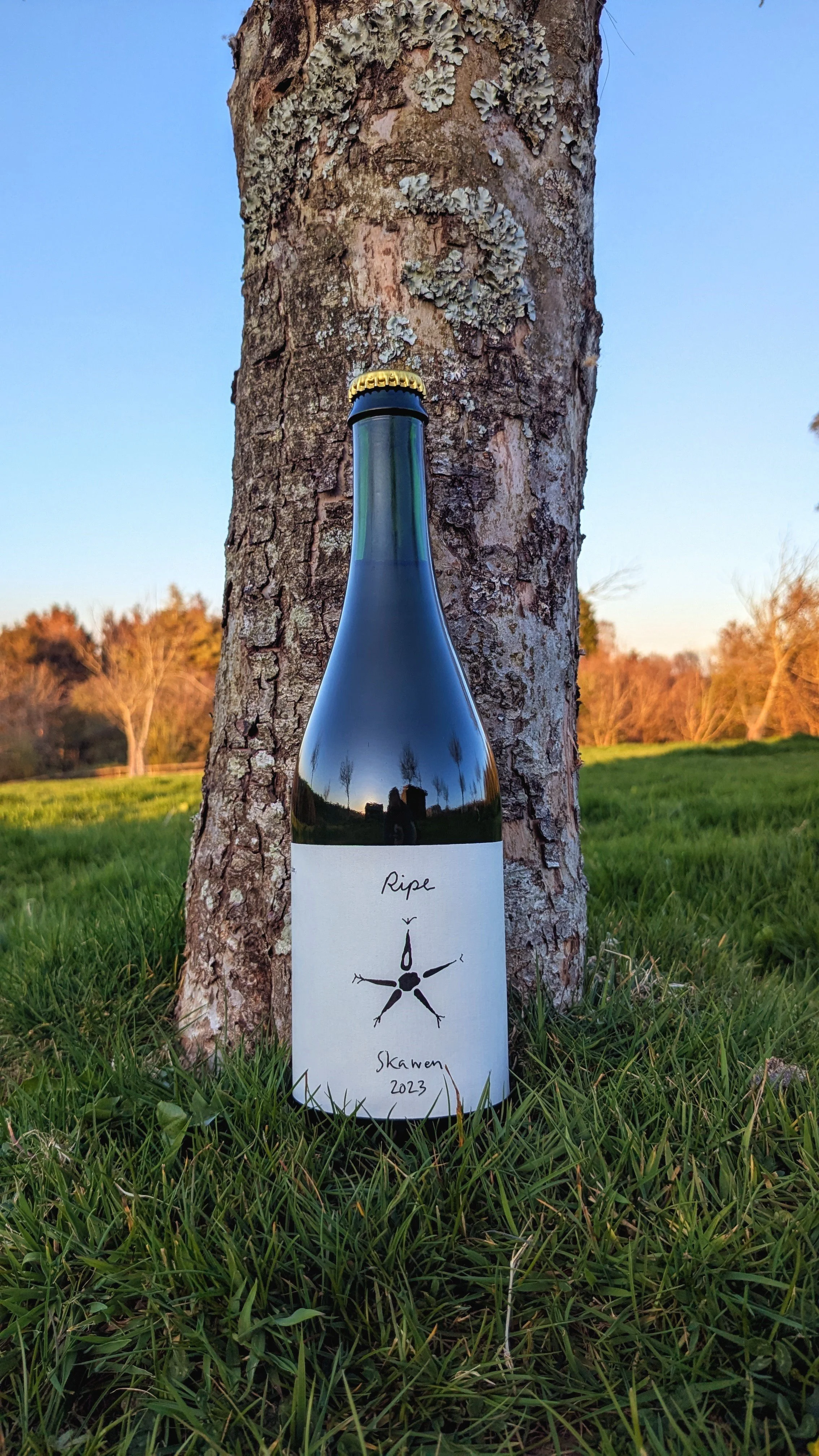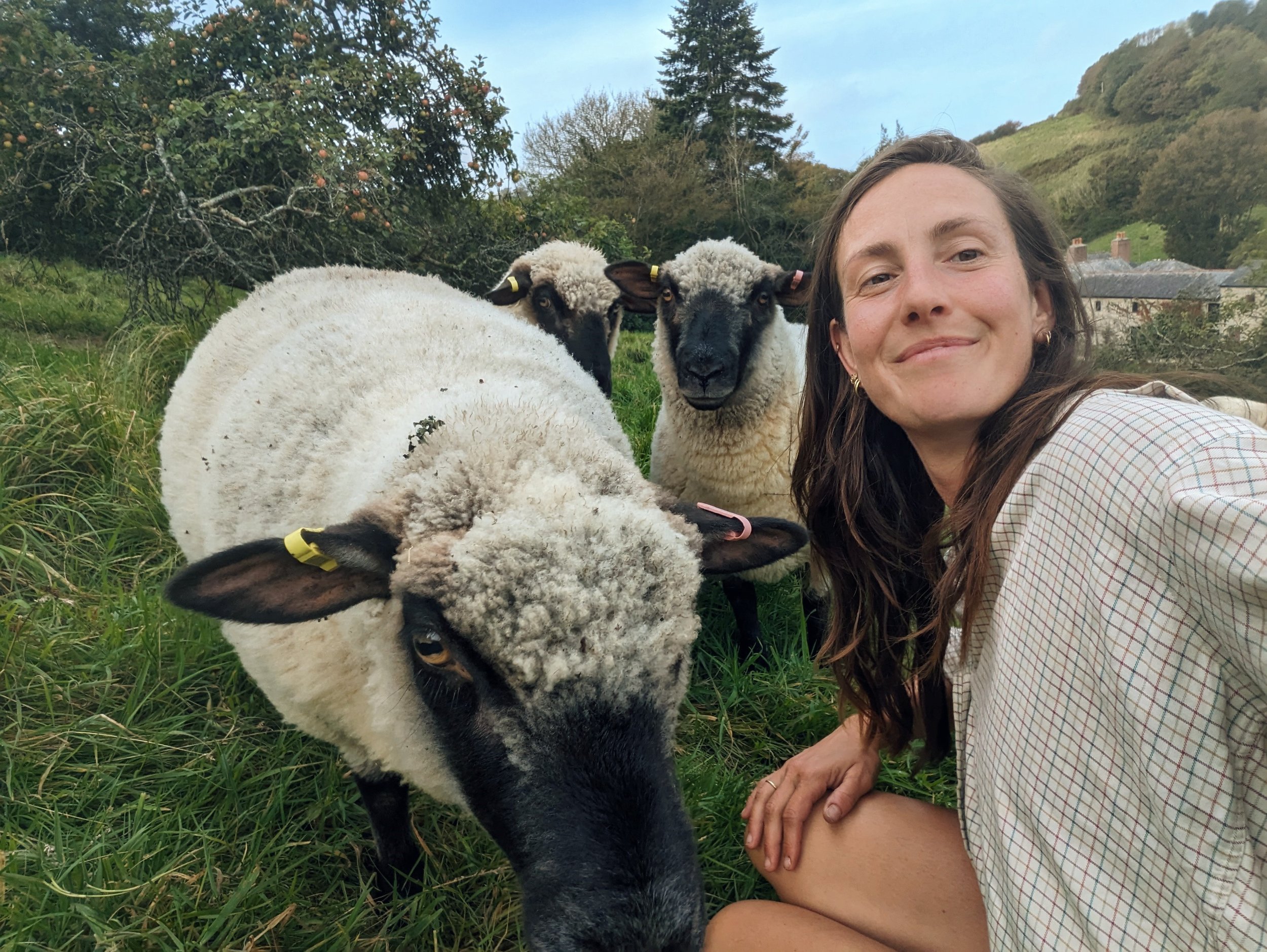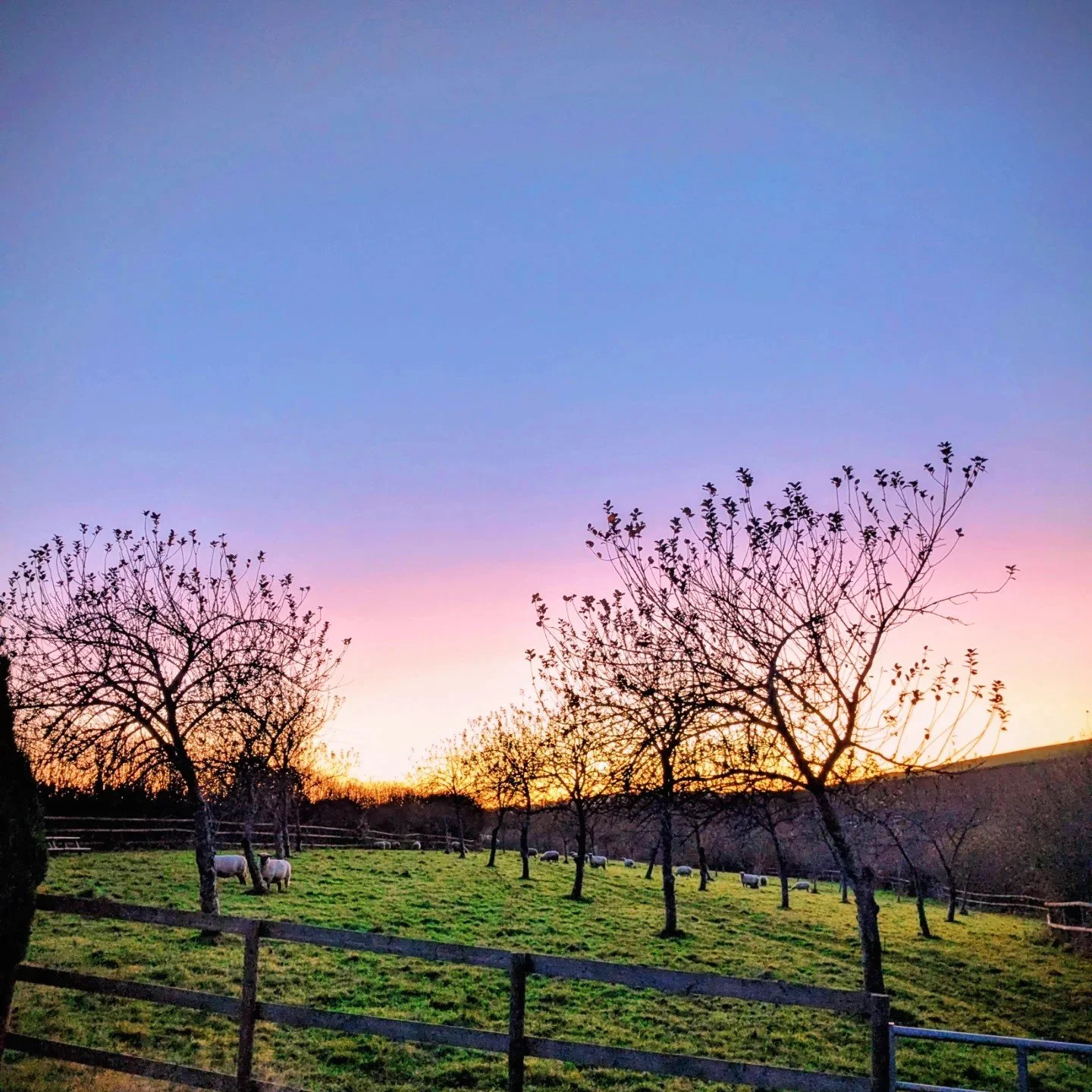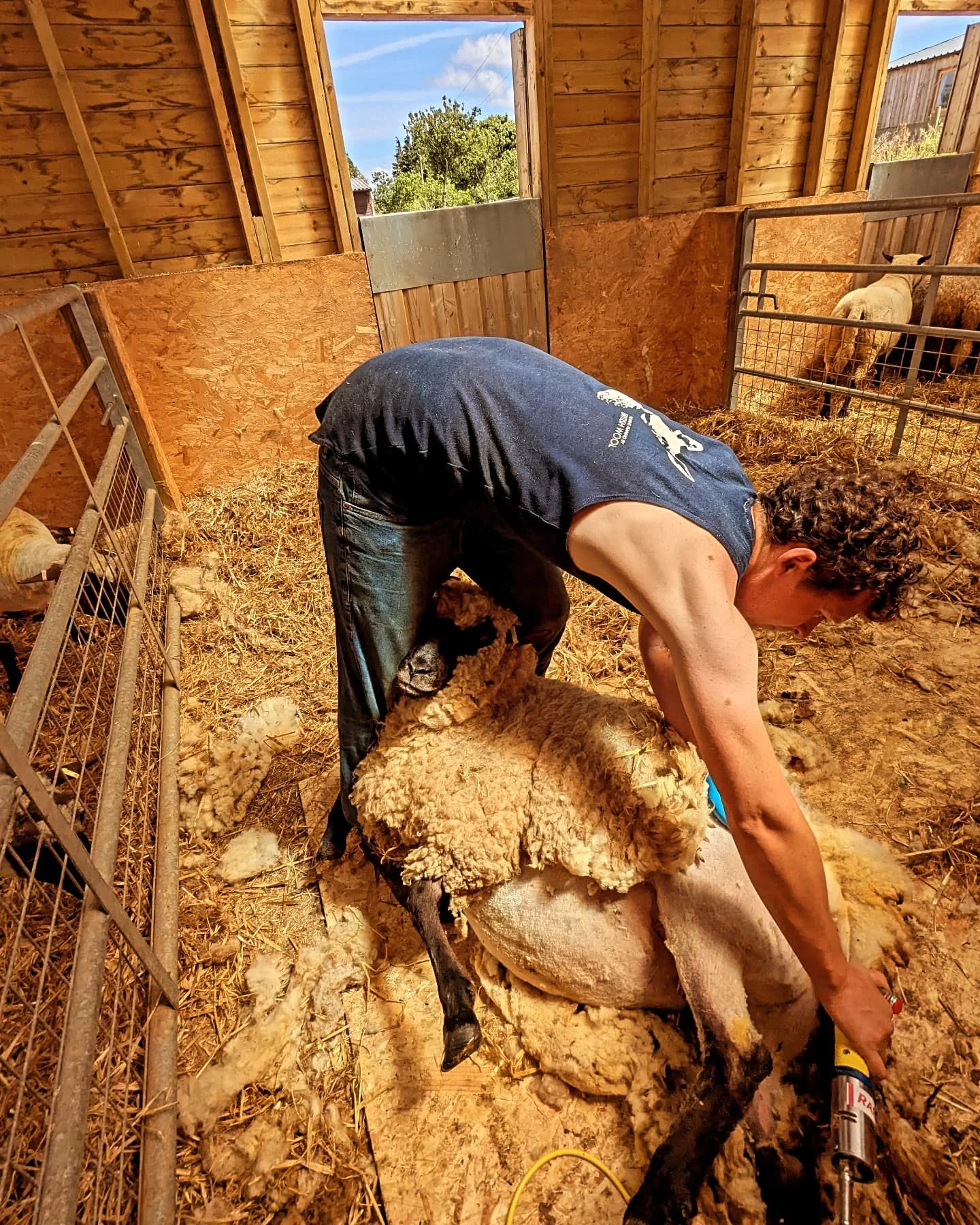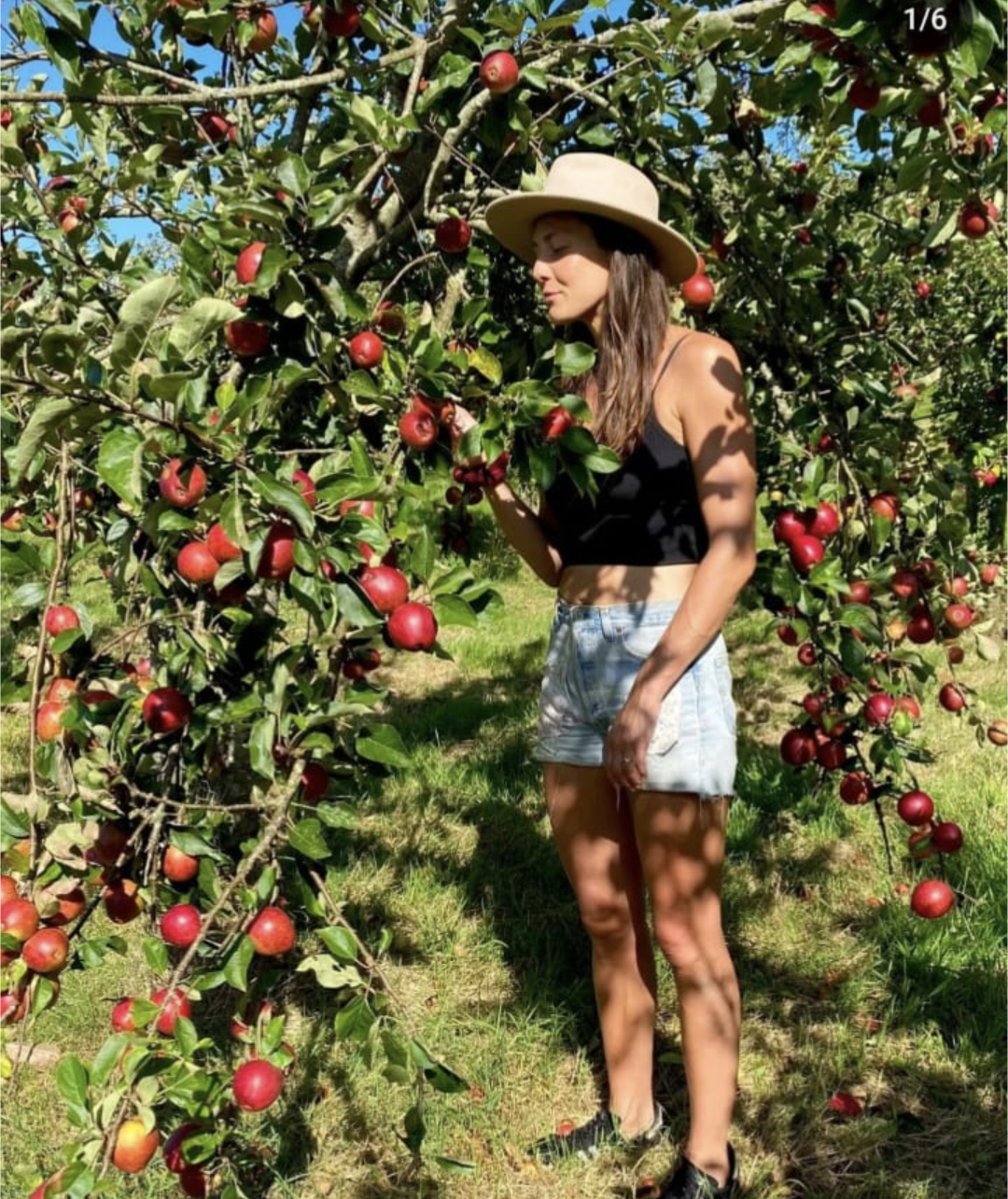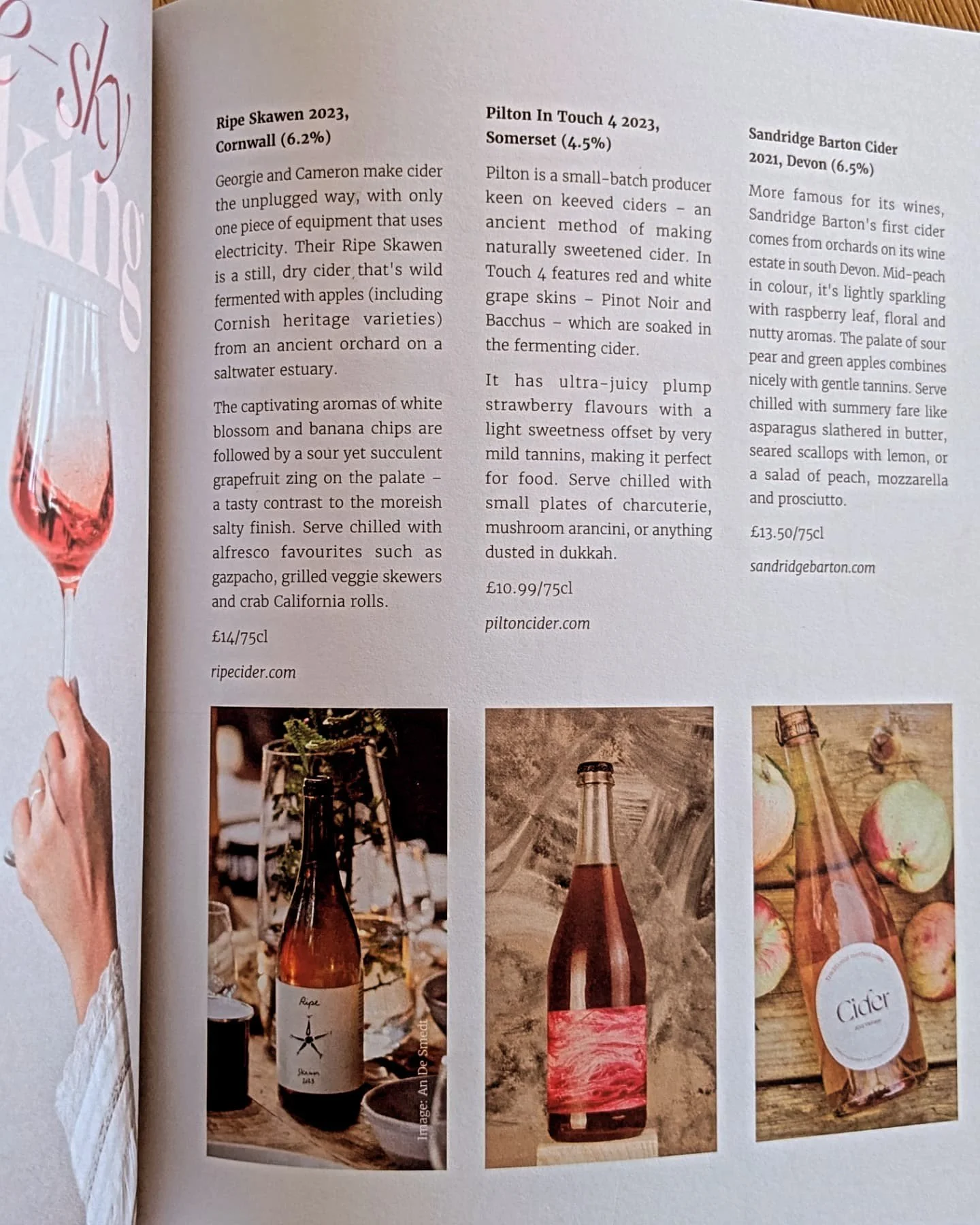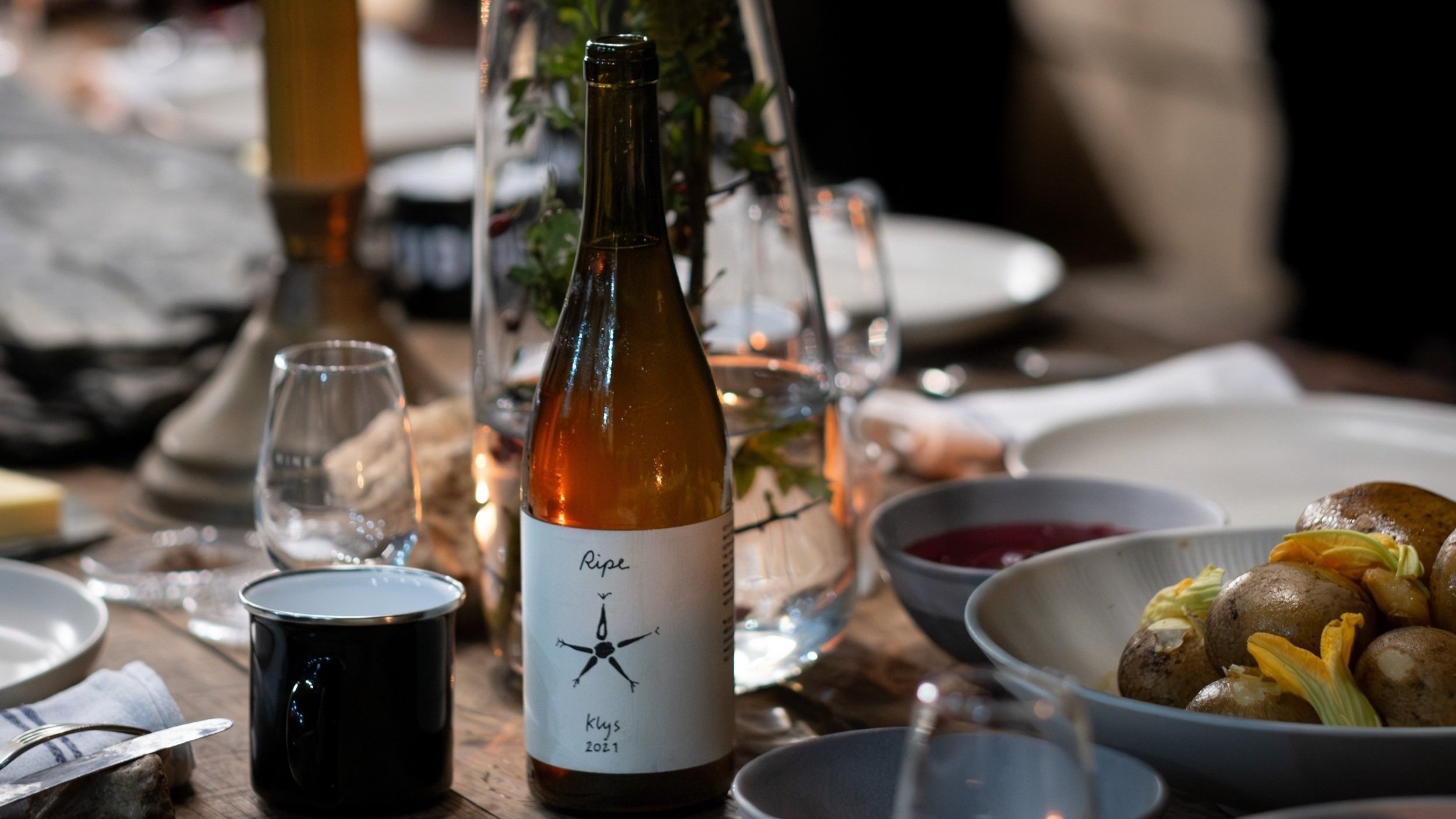
Ripe
Delicious Low-Intervention Cider
Ripe is a small, husband and wife cidery with 11 acres of ecologically managed orchards in South East Cornwall.
Our ciders are elegant, expressive and delicious. Designed for the table; best served in a wine glass and paired with food.
Lower in alcohol, never in flavour.
Made from 100% apples, handpicked from our unsprayed orchards, fermented with wild yeast, and aged naturally for 16+ months.
No additives, no sulphites.
Just 8,000 bottles a year, 1,000 bottles per release. Once it’s gone, it’s gone.
Drink conscious. Drink delicious.
PLEASE SCROLL DOWN TO READ MORE
-
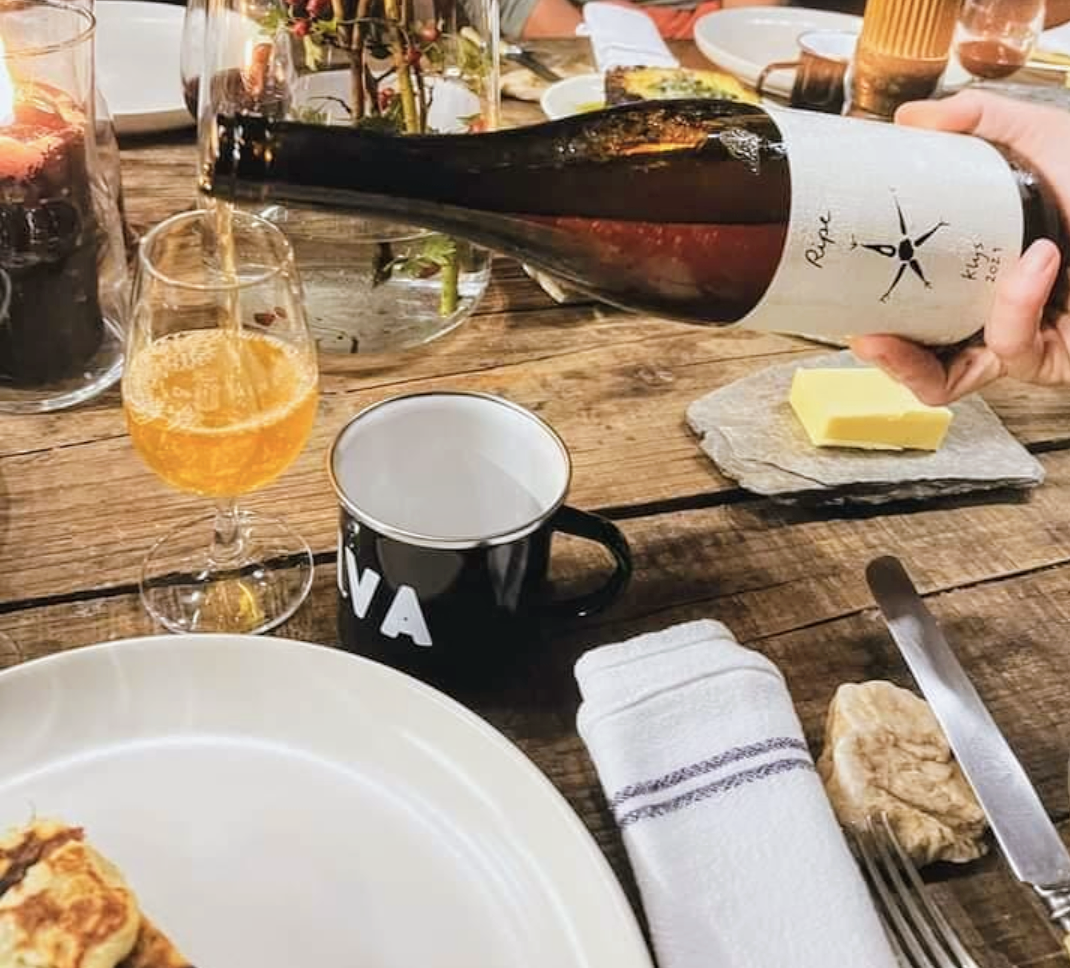
Taste & Style; A Cider for the Table
Our cider is closer to wine than a sweet, fizzy pint. Bottled like wine and enjoyed from wine glasses, it’s made for the table — shared with food and friends.
In style, it’s closer to an orange or skin-contact wine: expressive, deliciously dry, yet refreshing and full of character. It pairs beautifully with food, but with a lower alcohol content and a more accessible price point than most English sparkling wines. All of our ciders sit between 6–8% ABV.
Like wine, our ciders are complex, varied, and deeply influenced by terroir - each one a reflection of the orchard, the fruit, and the year it was made.
-

Naturally Fermented, Simply Delicious
Our ciders are made from 100% apples, grown organically (though not certified), and fermented with wild, naturally occurring yeast. We never add sulphites, not only because they interfere with wild fermentation, but because they can often contribute to next-day headaches.
As Tim Spector (ZOE) has noted, cider made in this way is “practically a health drink” thanks to the naturally occurring polyphenols, which support the growth of beneficial gut bacteria.
That said, it is still alcohol but with no additives no sulphites - just apples.
We believe food grown with care for the soil, the plants, and the wider ecosystem naturally has more flavour and is better for you.
Naturally gluten- and sugar-free
-
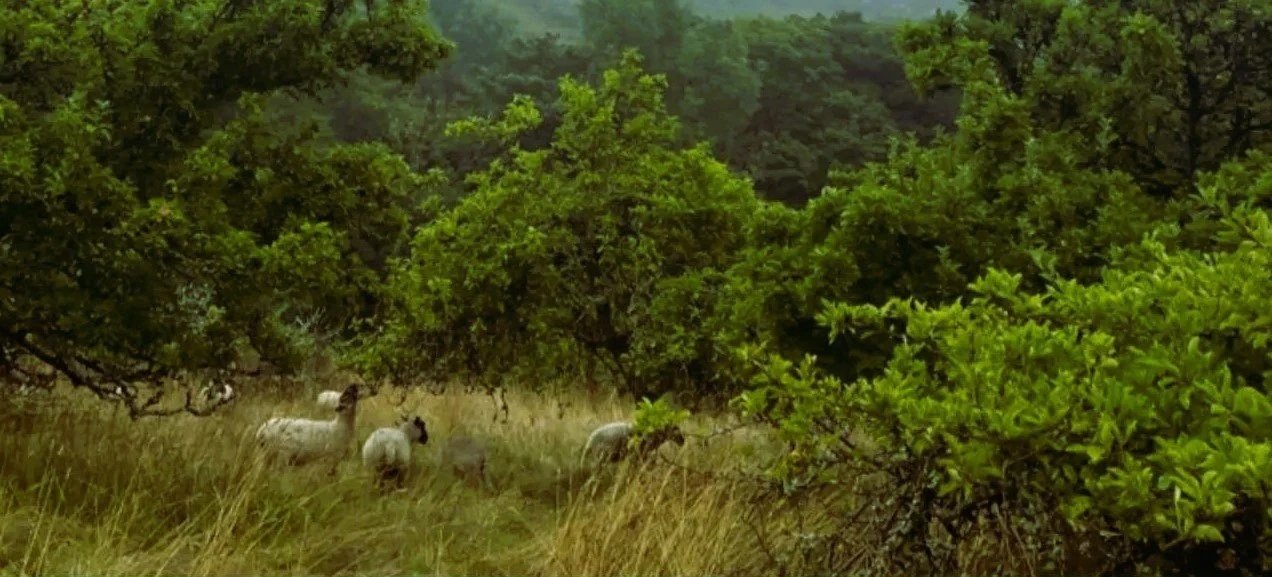
Working With Nature
How orchards are managed matters; to the land, to biodiversity, and to the future of orchards.
Traditional orchards are extraordinary ecosystems. When managed well, they support rich biodiversity, improve soil health, and act as powerful carbon sinks. Yet in the UK, traditional orchards are now considered an endangered habitat.
Our aim is simple: to make a delicious, low-impact cider that helps protect and restore these landscapes.
To do that, we work with nature. We don’t use chemical inputs or heavy machinery. The pasture beneath our trees is grazed by our flock of Shropshire sheep, encouraging healthier soils and increased carbon sequestration.
By choosing Ripe, you’re supporting a way of farming, and drinking, that values biodiversity, soil health, and long-term sustainability, while still delivering a beautifully expressive cider.
